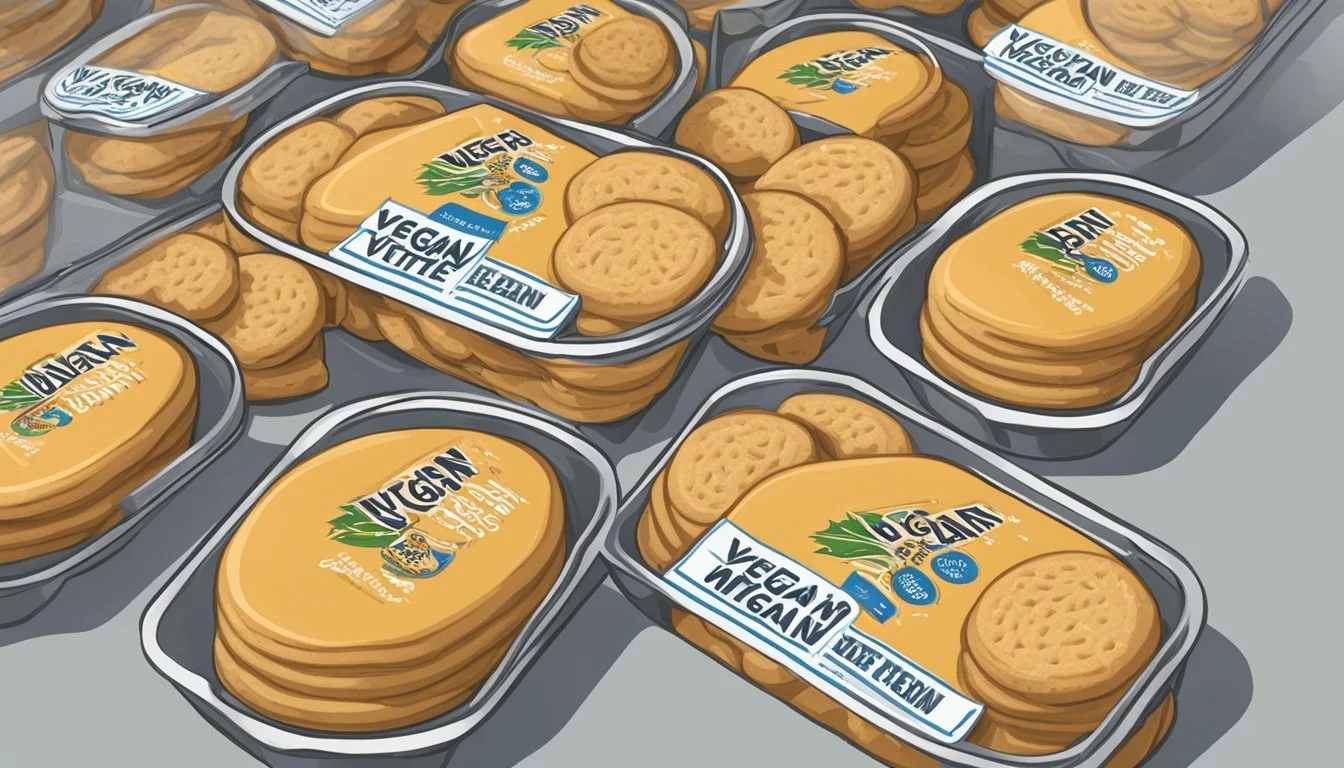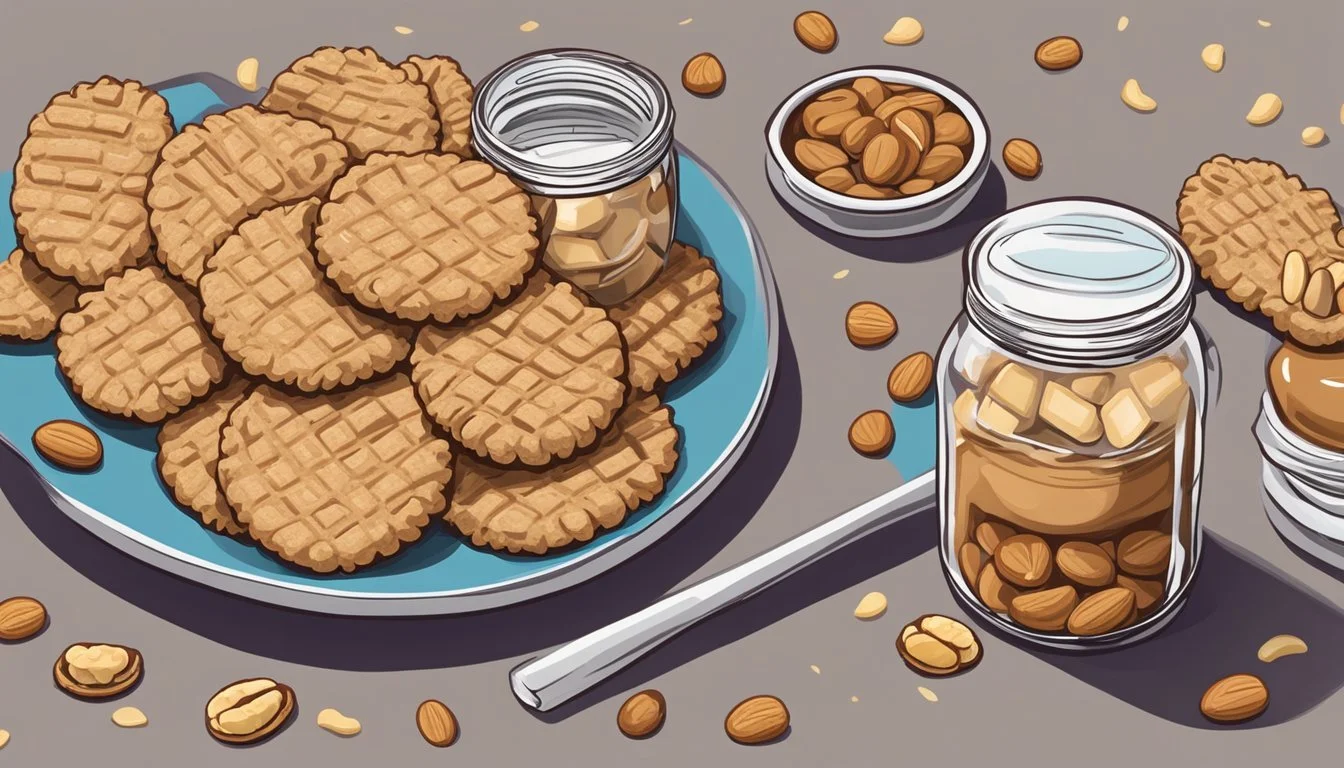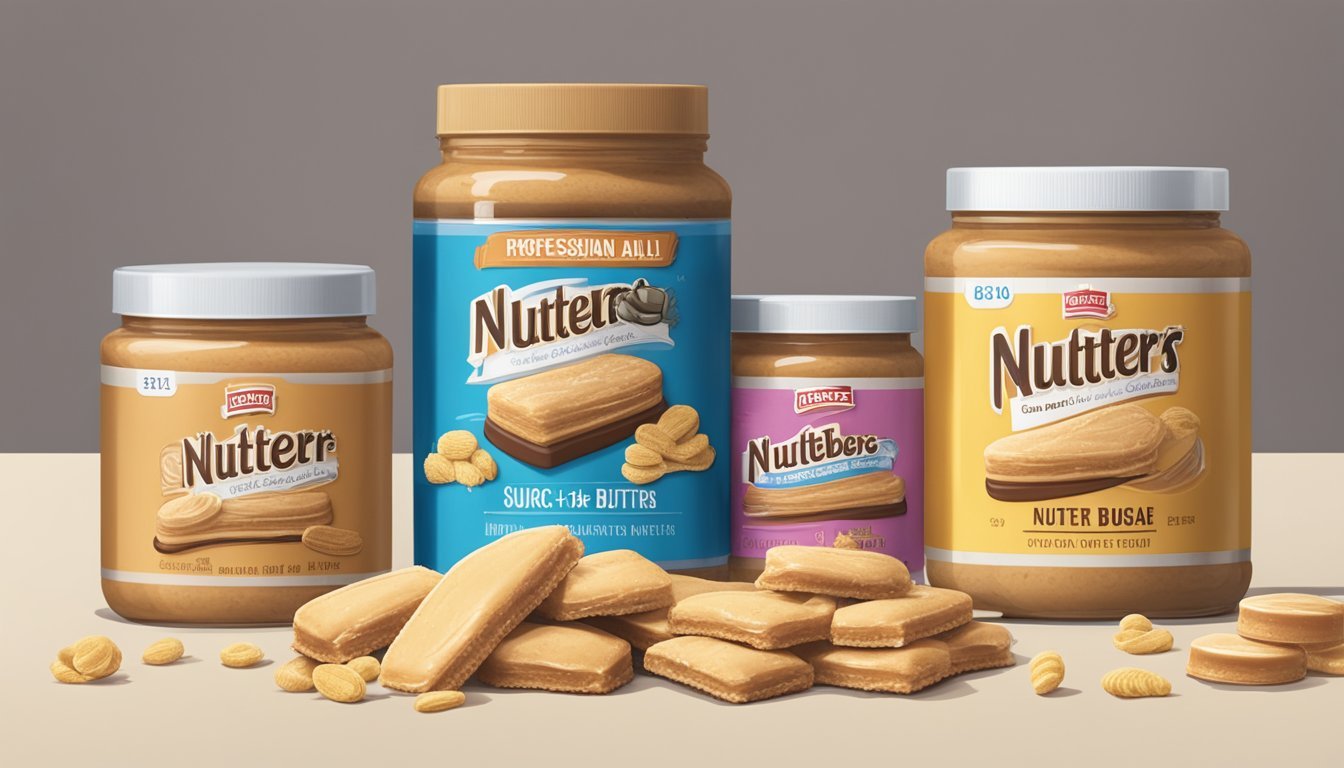Are Nutter Butters Vegan?
Unveiling the Ingredients and Verdict
When exploring vegan diets, individuals often question the vegan status of popular snacks, such as Nutter Butters. Nutter Butters, a product introduced by Nabisco in 1969, has established a reputation as a beloved peanut butter sandwich cookie across the United States. A common inquiry among vegans pertains to whether these cookies align with vegan principles, which exclude all forms of animal exploitation and cruelty.
Key considerations in assessing Nutter Butters' compatibility with a vegan lifestyle revolve around the ingredients list and manufacturing processes. The standard Nutter Butter cookies are composed primarily of plant-based components, which suggests they may fit into a vegan diet. However, the presence of controversial ingredients in certain variations, like artificial colors, calls into question the vegan credentials of these specific products.
Those seeking to maintain a vegan diet must carefully evaluate the ingredients of Nutter Butters. For stricter vegans, even if a product does not contain direct animal-derived substances, indirect associations with animal testing or animal cruelty can also influence the decision of whether to consume a particular item. Hence, the vegan status of Nutter Butters may differ depending on one's personal stance on these nuanced ethical issues.
What Does 'Vegan' Mean?
Veganism is a dietary and lifestyle choice characterized by abstaining from the use of animal products. A vegan diet is purely plant-based and excludes all forms of meat, dairy, eggs, and other substances derived directly or indirectly from animals. Individuals adopt veganism for various reasons, including ethical concerns for animal welfare, environmental considerations, and health benefits.
Ethical Veganism: This aspect focuses on the moral principles that regard the rights and welfare of animals. Vegans who follow this strictly avoid products that result from animal exploitation or cruelty, extending beyond food to clothing and other commodities.
Environmental Veganism: Supporters of this perspective believe that avoiding animal products can reduce one's ecological footprint, considering the resources and emissions associated with livestock and fishing industries.
Health Veganism: Some individuals choose a vegan diet for potential health advantages, such as lower risks of certain diseases and generally promoting a more nutrient-rich, lower-fat diet.
Products labeled as "vegan" mean they do not include:
Meat: Beef, pork, poultry, fish, or any other type of meat.
Dairy: Milk, cheese, butter, and other derivatives of cow's or goat's milk.
Eggs: From chickens or other birds.
Animal Derivatives: Ingredients like honey, gelatin, lanolin, and others originating from animals.
A truly vegan product not only refrains from incorporating animal-derived ingredients but also ensures that no animal testing was conducted at any stage of product development. Thus, veganism extends beyond diet, ultimately advocating for the total elimination of animal exploitation.
Overview of Nutter Butter Cookies
Nutter Butter cookies are a distinguished brand in the snack industry, known for their distinctive peanut-shaped sandwich cookies filled with creamy peanut butter. As a product of Nabisco, a subsidiary of Mondelez International, they've made a significant impact on the American biscuit market.
Historical Background
Nutter Butter cookies entered the market in 1969, quickly becoming a part of American snacking culture. Its ownership by Nabisco positions it within a portfolio of well-known brands. Representing the quintessential peanut butter sandwich cookie, Nutter Butters have withstood the test of time by maintaining a classic flavor that resonates with consumers.
Product Varieties
Several iterations of the original Nutter Butter have emerged over the years. The classic Nutter Butter, recognizable by its peanut shape and texture, remains a fan favorite. A more portable version, Nutter Butter Bites, offers the same taste in a smaller bite-sized form. For those with a penchant for chocolate, the Fudge Covered Nutter Butter presents a decadent alternative. Additionally, Nutter Butter Cereal and Nutter Butter Creme Patties diversify the product line, providing alternative ways to enjoy the peanut butter flavor that defines the brand.
Vegan Considerations for Snacks
When evaluating whether snacks such as Nutter Butters are vegan, one must inspect the ingredients list for non-vegan items and controversial additives that may comprise their vegan status.
Common Non-Vegan Ingredients
Snacks often contain ingredients such as milk, dairy-derived products, eggs, honey, and gelatin, all of which are direct animal products and thus not vegan. Confectioner's glaze, commonly used for a shiny appearance, often contains shellac, which is derived from insects and therefore also not vegan-friendly.
Milk/Dairy: Found in many cookies and snacks to enhance flavor and texture.
Eggs: Used as a binder in baked goods.
Honey: A sweetener produced by bees.
Gelatin: A thickener derived from animal collagen.
Confectioner's Glaze: Used for coating and adds shine to snacks.
Controversial Ingredients Impacting Vegan Status
The term 'controversial' in the context of vegan snacks refers to ingredients such as white sugar, which is sometimes processed using bone char to achieve its color. While not present in the final product, the use of bone char in processing can be a point of contention for vegans.
Sugar/Bone Char: Sugar can be refined using bone char, although not all sugar is processed this way.
Palm Oil: Its inclusion is debated due to environmental and ethical concerns regarding its production.
Additives: Some additives or artificial flavorings may be of animal origin or tested on animals.
Food Colors: Certain food colors raise ethical concerns about animal testing.
Identifying vegan snacks often requires one to look beyond the ingredient list for the broader impacts of each component, including their environmental and ethical implications. It's advisable for vegans to seek snacks with plant-based and cruelty-free labels or select snacks that use known alternatives to controversial ingredients.
Nutter Butter Ingredients Analysis
To establish if Nutter Butters meet vegan standards, a thorough analysis of their ingredients is essential. This includes the core components, potential non-vegan items, and additives used for flavoring.
Core Ingredients
Flour: Nutter Butters typically use unbleached enriched flour, which includes wheat flour fortified with niacin, reduced iron, thiamine mononitrate (vitamin B1), riboflavin (vitamin B2), and folic acid.
Sweeteners: Both sugar and high fructose corn syrup serve as key sweetening agents.
Fats: The cookies contain several oils including canola oil and palm oil.
Peanuts: Naturally, as a peanut butter cookie, peanuts are a significant ingredient.
Potentially Non-Vegan Ingredients
Sugar: The sugar used may be processed with bone char from animals, a practice some manufacturers employ to whiten sugar.
Palm Oil: Vegans often avoid palm oil due to the environmental impact of its production and its questionable sustainability.
Flavors: Both artificial flavors and natural flavors can sometimes involve animal-derived ingredients or testing.
Additives and Flavorings
Leavening agents: Baking soda and/or calcium phosphate are used to help the cookie rise.
Emulsifiers: Soy lecithin, derived from soybeans, acts as an emulsifier to maintain texture.
It's important to note that Fudge Covered Nutter Butters and Nutter Butter Cereal could contain additional ingredients, such as cornstarch or oat flour, altering their vegan status. Furthermore, an examination of the peanut butter filling would be necessary, as it may include other ingredients not in line with a vegan diet.
Sugar and Bone Char: An In-Depth Look
When investigating whether a product like Nutter Butters is vegan, the processing of sugar is a critical point, particularly the use of bone char.
Role of Bone Char in Sugar Production
Refined sugar is often produced from sugarcane which can be processed using bone char. Bone char acts as a decolorizing filter, contributing to the sugar's white appearance. It is derived from the bones of cattle, making any sugar refined with this method non-vegan. Not all sugar production uses bone char; beets and some cane sugar processes avoid it, keeping the end product suitable for vegans.
Alternatives to Bone Char-Based Sugar
There are vegan-friendly alternatives to bone char-processed sugar, and these include:
Organic cane sugar: Typically not filtered with bone char.
Beet sugar: Derived from sugar beets and does not involve bone char.
Coconut sugar: A natural sweetener produced from the sap of flower buds from the coconut palm.
Maple syrup: A plant-based syrup made from the xylem sap of sugar maple trees.
Agave nectar: An alternative sweetener from the agave plant.
Consumers looking for vegan products should seek out alternatives that explicitly state they are bone char-free.
Palm Oil: Environmental and Ethical Considerations
Palm oil is prevalent in numerous food products, including Nutter Butters. It falls under scrutiny due to significant environmental and ethical concerns, particularly when considering vegan principles.
Palm Oil in the Food Industry
Palm oil is widely utilized in the food industry due to its semi-solid consistency at room temperature and its relatively low cost. It is an ingredient in various food items, from baked goods like Nutter Butters to spreads and snack foods. The controversy arises from the fact that while palm oil is plant-based and technically vegan, ethical vegans may object to its use due to the environmental impact associated with its production.
Impact on Wildlife and Deforestation
The production of palm oil is linked to severe environmental consequences. One of the most pressing issues is deforestation in countries like Indonesia, where vast areas of rainforest are cleared to make way for palm oil plantations. This deforestation has a direct impact on wildlife, pushing some species toward extinction by destroying their natural habitats. The Sumatran Orangutan and the Borneo Elephant are examples of species that are critically endangered due to habitat loss from deforestation. The loss of forested areas also contributes to climate change, making palm oil a controversial ingredient among individuals concerned with both the environment and animal welfare.
Nutter Butter and Dairy Ingredients
In the discussion of vegan suitability for snack cookies, the presence of dairy is a pivotal factor. Nutter Butter cookies are often scrutinized to determine if dairy is an ingredient, which would classify them as non-vegan.
Presence of Dairy in Snack Cookies
Dairy products, such as milk, are common ingredients in many dessert and snack cookies. They are utilized for their ability to provide moisture, richness, and flavor. However, classic Nutter Butter cookies do not list milk or other direct dairy derivatives in their ingredients. This absence of traditional dairy components categorizes the original Nutter Butter cookies as dairy-free. Nonetheless, certain varieties, like the Fudge Covered Nutter Butters, contain dairy, making them unsuitable for a vegan diet.
Vegan Dairy Alternatives
For individuals following a strict vegan or plant-based diet, dairy alternatives are important. These alternatives include ingredients derived from plants like almonds, soy, oats, and coconut. Snacks labeled as vegan may incorporate these to replace dairy while still providing similar taste and texture. In recipes and products aiming for dairy-free status, items such as oat flour can be found. This is demonstrated in some vegan-friendly recipes for homemade Nutter Butter-like cookies, which may use oat flour and other plant-based ingredients to achieve a similar result without dairy.
Conclusion and Final Thoughts
In assessing whether Nutter Butters are suitable for a vegan diet, one must consider the specific ingredients used in their production. The primary ingredients in question include enriched flour, sugar, peanut butter, palm oil, and high fructose corn syrup, among others. The contention primarily arises with the inclusion of sugar and palm oil.
Sugar processing can sometimes employ bone char, which is derived from animal bones, thus potentially excluding the product from being classified as vegan. However, it is not explicitly stated whether the sugar used in Nutter Butters is processed in this manner.
From an environmental perspective, the use of palm oil is contentious due to deforestation and impacts on wildlife habitats, prompting some vegans to avoid it. Although Nutter Butters does not make explicit environmental claims, it remains a point for consumer consideration.
In terms of alternatives, consumers seeking vegan-friendly options can look for products that clearly state they do not contain animal derivatives or controversial ingredients like certain sugars and palm oil.
The brand Nabisco does not advertise Nutter Butters as vegan, and as of now, consumers who follow strict vegan guidelines might prefer to opt for recognized vegan-certified snacks that leave no room for ambiguity concerning their ingredient sources.
Key Component Consideration for Vegans Sugar Possible bone char filtration Palm Oil Environmental impact concerns Certification Lack of vegan certification
Consumers must weigh these factors when determining the suitability of Nutter Butters for their vegan lifestyle.








